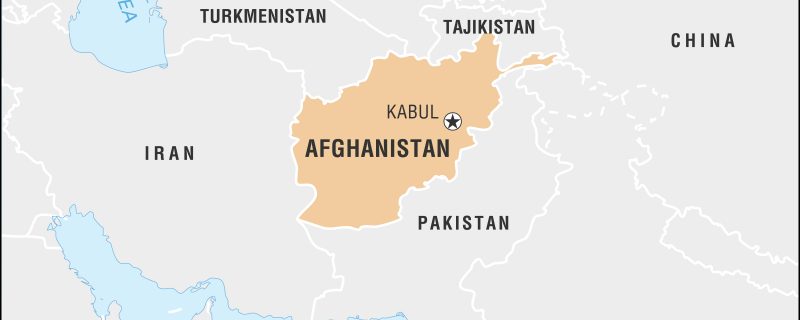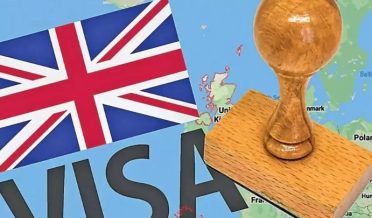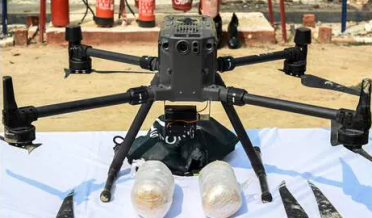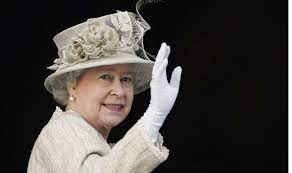The Taliban have seized power in two weeks before the US was set to complete its troop withdrawal after a costly two-decade war. Taliban fighters stand outside the Interior Ministry in Kabul, Afghanistan, August 16, 2021. The insurgents stormed across the country, capturing all major cities in a matter of days, as Afghan security forces trained and equipped by the US and its allies melted away. The Taliban, a militant group that ran the country in the late 1990s, have again taken control.
The US-led invasion of Afghanistan in 2001 ousted the insurgents from power, but they never left. After they blitzed across the country in recent days, the Western-backed government that has run the country for 20 years collapsed. Afghans, fearing for the future, are racing to the airport, one of the last routes out of the country.
They’re worried that the country could descend into chaos or the Taliban could carry out revenge attacks against those who worked with the Americans or the government. Many also fear the Taliban will reimpose the harsh interpretation of Islamic law that they relied on when they ran Afghanistan from 1996 to 2001. Back then, women were barred from attending school or working outside the home. They had to wear the all-encompassing burqa and be accompanied by a male relative whenever they went outside. The Taliban banned music, cut off the hands of thieves and stoned adulterers. The Taliban have sought to present themselves as a more moderate force in recent years and say they won’t exact revenge, but many Afghans are sceptical of those promises.
American troops ousted the Taliban in a matter of months when they invaded to root out Al-Qaida, which orchestrated the 9/11 attacks while being harboured by the Taliban. But it proved more difficult to hold territory and rebuild a nation battered by repeated wars. As the US focus shifted to Iraq, the Taliban began to regroup and in recent years took over much of the Afghan countryside. Last year, then-president Donald Trump announced a plan to pull out and signed a deal with the Taliban that limited US military action against them. President Joe Biden then announced that the last troops would leave by the end of August.
The US and its NATO allies spent billions of dollars over two decades to train and equip Afghan security forces. But the Western-backed government was rife with corruption. Commanders exaggerated the number of soldiers to siphon off resources, and troops in the field often lacked ammunition, supplies or even food. Their morale further eroded when it became clear the US was on its way out. As the Taliban rapidly advanced in recent days entire units surrendered after brief battles, and Kabul and some nearby provinces fell without a fight.
President Ashraf Ghani hunkered down and made few public statements as the Taliban swept across the country. On Sunday, as they reached the capital, he left Afghanistan, saying he had chosen to leave to avoid further bloodshed. It’s not clear where he went. The Fall of Saigon to North Vietnamese forces in 1975 marked the end of the Vietnam War. It became an enduring symbol of defeat after thousands of Americans and their Vietnamese allies were airlifted out of the city on helicopters. US secretary of state Antony Blinken has rejected any comparisons to Afghanistan, saying: “This is manifestly not Saigon.”
The Taliban say they want to form an “inclusive, Islamic government” with other factions. They are negotiating with senior politicians, including leaders in the former government. Many are worried they will once again be confined to their homes. The Taliban have said they are no longer opposed to women attending school but have not set out a clear policy on women’s rights. Afghanistan remains.
The twin towers of the World Trade Centre billow smoke after hijacked airliners crashed into them early 11 September 2001. But earlier this year, the Pentagon’s top leaders said an extremist group like Al-Qaida may be able to regenerate in Afghanistan, and officials are now warning that such groups could grow much faster than expected.
Afghanistan is also home to an Islamic State group affiliate that has carried out a wave of horrific attacks targeting its Shiite minority in recent years. The Taliban have condemned such attacks and the two groups have fought each other over territory, but it remains to be seen whether a Taliban government will be willing or able to suppress IS.
10 Downing Street has not yet revealed how many refugees it is willing to take from Afghanistan, but a new scheme is thought to be in place to bring those who might be Taliban targets – individuals who work with the media or who have worked with the UK – over to Britain. UK Foreign secretary Dominic Raab also said the UK could increase aid funding directed to Afghanistan by 10 percent, following the foreign aid cuts earlier this year. In 2019, the country was the third biggest recipient of UK aid and received £292 million – it was set to receive £155 million this year after cuts.
Approximately 2,000 have already left Afghanistan under the UK’s resettlement scheme, according to prime minister Boris Johnson. He also said he did not want any country to “bilaterally recognise the Taliban”.
 213
213






